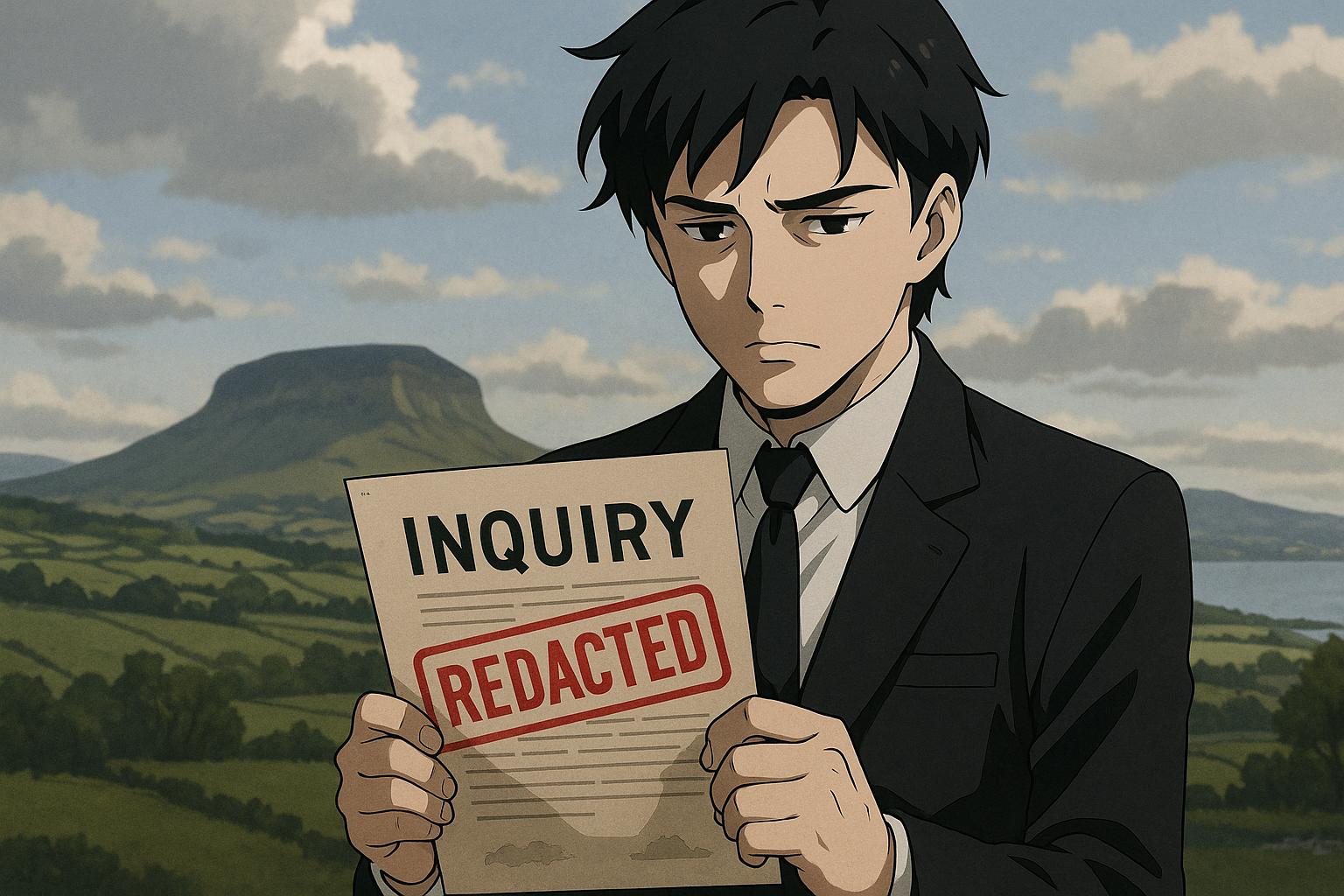The proposed redaction of junior civil servants' names from documents related to the inquiry into the Omagh Bomb raises significant concerns about access to vital information for victims' families and a perceived attempt by the UK government to limit scrutiny. This inquiry, which addresses the tragic Real IRA bombing that claimed 29 lives and two unborn children in August 1998, is set against a backdrop of political sensitivity and historical issues surrounding transparency in Northern Ireland.
Legal representatives for the bereaved, including Raymond Foster KC, argue that the government's application to withhold names is an effort to "exclude" core participants, predominantly the families who have been advocating for justice for over two decades. In their view, granting this application would introduce an "unacceptable level of secrecy" that undermines the inquiry’s objective of openness and accountability. Foster articulated this stance during the inquiry, emphasising that the expected transparency is crucial for instilling public confidence in the investigatory process.
The UK government has justified the redaction based on fears that disclosures could endanger the lives of civil servants by leaving them vulnerable to attacks from dissident republicans. However, this rationale has been challenged in light of previous patterns where excessive secrecy has overshadowed the need for transparency in Northern Ireland’s investigative efforts. The inquiry has already faced stumbling blocks, with counsel Paul Greaney KC revealing that approximately 700 documents, equating to over 8,000 pages of evidence, have been withheld pending these deliberations on redaction.
Adding complexity to this matter, Irish officials have previously expressed concerns regarding political ramifications tied to the inquiry. For instance, the Irish government recently requested that the UK withdraw appeals for information related to the Omagh bombing, fearing that it might antagonise Sinn Féin and disrupt the fragile peace process. In addition, cooperation with the UK government appears to hinge on sensitive information, as echoed by Irish Justice Minister Jim O’Callaghan who highlighted the need for redacting "security sensitive" content while still overseeing robust communication between both governments.
Despite the absence of new evidence warranting an inquiry in the Republic of Ireland, officials have reiterated a commitment to collaboration with their UK counterparts. This collaboration is vital for ensuring thorough examination of the events surrounding the bombing. There are implications that effective engagement from Irish witnesses, including gardaí, could enhance the inquiry’s integrity.
As scrutiny intensifies over how the Omagh Bomb inquiry is managed, the balance between national security and the right of victims' families to access information remains a critical focal point. The ongoing dialogue surrounding redactions and transparency will ultimately shape the public's perception of the inquiry's legitimacy. Such discussions underscore the enduring legacy of the Troubles and the commitment of those affected to seek truth and justice within a complex legal and political landscape.
Reference Map
- Paragraphs 1, 2, 3, 4
- Paragraph 5
- Paragraph 6
- Paragraph 7
- Paragraph 8
- Paragraph 9
- Paragraph 10
Source: Noah Wire Services
